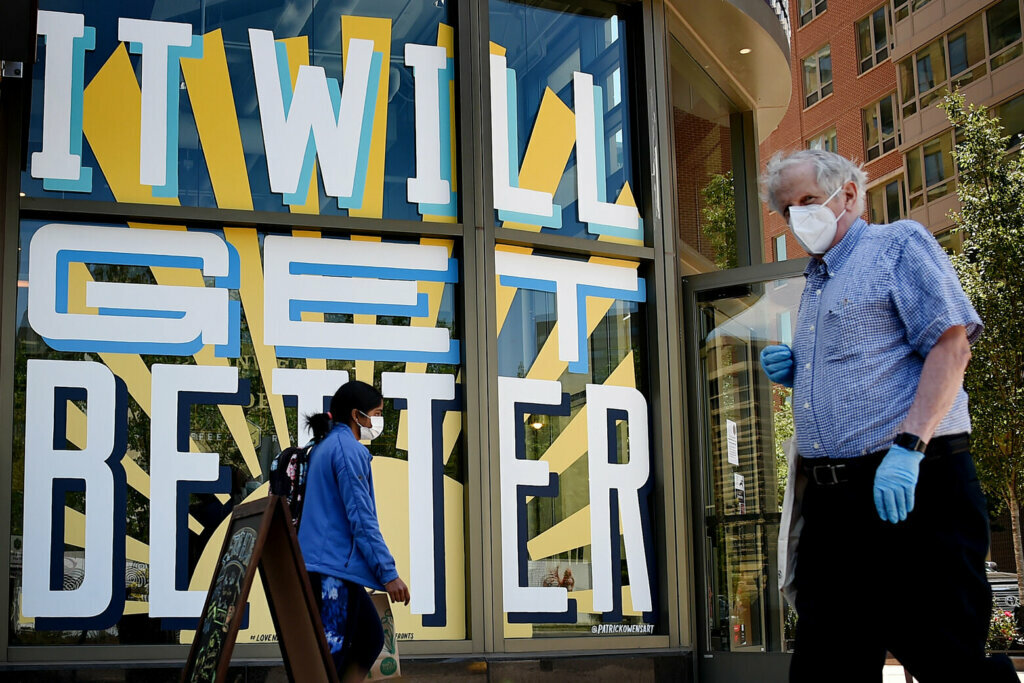
Faced with surging coronavirus cases, Virginia health officials have directed contact tracing teams across the commonwealth to consider prioritizing their caseloads, saying local health departments may not be able to contact everyone with a COVID-19 infection or all of their close contacts.
The Virginia Department of Health said in news release Monday that local departments should prioritize residents recently infected and people in their households, as well as target those living or working in nursing homes and other congregate settings.
The department cited “substantial levels of COVID-19 community transmission” for the change, which also comes after the Centers for Disease Control and Prevention issued retooled contact tracing guidelines amid a nationwide spike in coronavirus cases.
Virginia on Sunday reported 3,880 new coronavirus cases, the state’s highest one-day total of new coronavirus cases. The number of people hospitalized with the virus is also climbing.
- Sign up for WTOP alerts
- Latest coronavirus test results in DC, Maryland and Virginia
- Lawmakers who met with Giuliani scramble after COVID news
- As virus talks drag, Congress prepares temporary funding fix
- Why DC isn’t issuing a stay-at-home order yet
- Are you stockpiling necessities again? Some have regrets
- Md. health dept. procurement chief fired in midst of Korean test kit controversy
Looking for more information? D.C., Maryland and Virginia are each releasing more data every day. Visit their official sites here: Virginia | Maryland | D.C.
With less intense levels of community spread of the virus, contact tracers would generally aim to contact all COVID-19 cases and all of their close contacts.
But Elena Diskin, epidemiology program manager and co-lead for the department’s COVID-19 Containment Unit, said the spike in cases means not every person infected with COVID-19 should expect a call from their local health department.
The adjusted guidance is focused on speed and making the biggest impact, she said.
“Contact tracing works really well when you’re able to break those chains of transmission really quickly,” Diskin told WTOP. “So, with these levels of transmission in the community that we’re seeing now — and we’re seeing continuing to rise — the process doesn’t work as well, because you can’t trace every exposure or break that chain of transmission fast enough.”
Focusing on more recent cases — residents who tested positive in the past six days, specifically — allows health officials to interrupt potential outbreaks early on.
“With these rising number of cases, the contact tracers really just need to focus on kind of reaching people as quickly as possible,” Diskin said, noting that individual contact tracers’ caseloads are increasing by hundreds of cases a day in some areas.
The new guidelines say, if needed, contact tracers should prioritize:
- People diagnosed with COVID-19 in the past six days and their household contacts
- People who live, work or who visited congregate living facilities, such as nursing homes
- People involved in known clusters or outbreaks
- People at increased risk of severe illness.
Contact tracing is an essential part of limiting outbreaks of the coronavirus, officials say, and Virginia has hired nearly 2,000 contact tracers since May.
Diskin stressed that during the current spike in cases, people who test positive should self-isolate at home and away from others for at least 10 days, even if they don’t hear from their local health department.
In addition, the Virginia Department of Health has tips for how people can identify and notify contacts on their own.
In a letter to health care providers, director of the Loudoun County Health Department Dr. David Goodfriend said his department began prioritizing contract tracing last week when the CDC updated its guidance.
“With this focus on investigating the most recent cases, it is expected that we will not be able to contact all positive cases of COVID-19 in the county,” Goodfriend wrote in a Dec. 3 letter to health care providers. “We ask that you provide guidance regarding isolation to all your COVID-19 patients, and do not set an expectation with them that they will definitely be contacted by one of our case investigators.”
Still, some local health departments in Northern Virginia say they will continue contacting all positive cases in their jurisdictions.
Shawn Kiernan, the epidemiologist with the Fairfax County Department of Health, said in an emailed statement: “Currently, in the Fairfax Health District, we are working hard to continue to investigate all cases that are reported to us in a timely manner rather than prioritize cases. Case and contact investigations are an essential tool in ‘boxing it in,’ and we firmly believe that investigating all cases is one of the most effective tools public health has.”
Fairfax County said nearly 400 contact tracers work seven days a week on the effort.
In addition to the contact tracing priorities, Virginia announced Monday that the state is adopting the CDC’s recently revised quarantine guidance. Last week, the CDC announced a shortened quarantine period: 10 days for people who don’t exhibit symptoms, or just seven days for people who receive a negative test result after their exposure.
Saying the 14-day quarantine is still the safest, Virginia health officials added that they are adopting the new CDC guidelines except for health care workers, who will need to continue to quarantine for the full 14 days.








